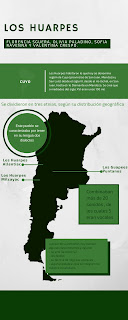Tropical Cyclones Summary
Summary: Tropical Cyclones
A Tropical Cyclone is a rapidly rotating storm system characterized by a low-pressure center, a closed low-level atmospheric circulation, strong winds and a spiral arrangement of thunderstorms.
Tropical Cyclones are named with people’s names. These names are alphabetically ordered, according to when they occur, its location and strength for example, here is the list of 2017´s Tropical Cyclones: Adrian, Beatriz, Calvin, Dora, Eugene, Fernanda, Greg, Hilary, Irwin, Jova, Kenneth, Lidia, Max, Norma, Otis, Pilar, Ramon, Selma, Todd, Veronica, Wiley, Xina, York and Zelda.
Tropical Cyclones used warm air as fuel, this is why they only form in warm ocean waters near the equator. This warm air rises upward from near the surface, there is less air left near the surface. causing an area of lower air pressure. So, air from surrounding areas with higher air pressure pushes into the low pressure area, so the warm air continue rising and cool off, and the water in the air forms clouds, that spins and grows , fed by the ocean`s heat and water evaporating from the surface. As the storm system rotates faster and faster and cause the cyclone.
We need a warm and humid weather condition so as to generate a Tropical Cyclone, it’s have to be windy over tropical waters, it meets with the wind so is vaporized, and rise up to the atmosphere.
The following is the Scale of the Hurricane:
STRENGTH
|
CATEGORY
|
KNOTS
|
MPH
|
HM/H
|
Tropical Depression
|
TD
|
<34
|
<39
|
<63
|
Tropical Storm
|
TS
|
34-63
|
39-73
|
63-118
|
Hurricane
|
Cat 1 (H1)
|
64-82
|
74-95
|
119-153
|
Hurricane
|
Cat 2 (H2)
|
83-95
|
95-110
|
154-177
|
Intense Hurricane
|
Cat 3 (H3)
|
95-113
|
110-130
|
178-210
|
Intense Hurricane
|
Cat 4 (H4)
|
114-135
|
131-155
|
211-250
|
Intense Hurricane
|
Cat 5 (H5)
|
>135
|
>155
|
>250
|
The main effects of the Tropical Cyclones are the following:
- strong winds
- rainfall and flooding
- storm surge and waves
- tornadoes
- economic impact
- economic gains
- issue of warnings
- community awareness and public education
There are many ways to reduce the impact that tropical cyclones have, protecting your house and your well-being.
- Household Preparations to Make in Advance.
- Preparing a Supply Kit.
- Prepare yourself when there is a storm warning.



Oli, this is OK. However, there's information missing as, for example, how they are named depending on where they occur. Also, when you write about how the effects can be reduced, this should be better developed. You write: "Prepare yourself...". OK, but how?
ResponderEliminar